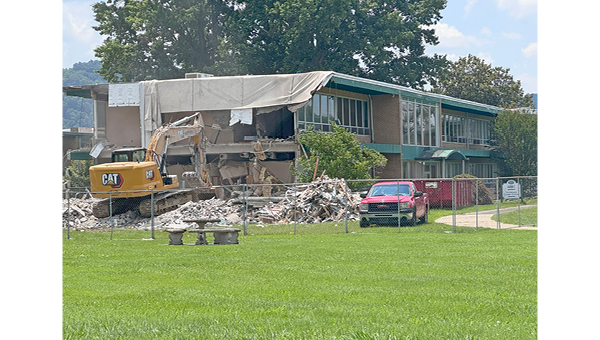Budget hearings are important — it’s about your tax dollars
Published 9:07 am Wednesday, May 1, 2019
Both, the Carter County Commission and the Elizabethton City Council have been feverishly working on budgets for the upcoming fiscal year. It is not a task to be taken lightly as government officials are working with the public’s tax dollars — dollars that you worked hard for and would like to be seen spent wisely.
It has been said that a public budget serves as a statement of principles for government, be it local, state or federal. Prepared by staff and approved by elected officials, the spending plan attempts to apply money in a manner that accurately reflects public sentiment and helps chart a path for the future.
The process of consideration and deliberation that helps develop the blueprint for a given fiscal year is perhaps as valuable as the budget document itself. On the local level especially, it encourages a community to come together to discuss its priorities and to think about the type of place it aspires to be in one, five or even 10 years down the road.
The Carter County School Board last week passed its budget for the next fiscal year. The school system is facing a decline in both students and revenue, but did approve a budget that includes a three percent pay raise increase for para-professionals and a 1.5 percent pay increase for teachers.
As the school year wind down across Carter County and much of Tennessee, most all rural school districts are experiencing age-old problems: how to fix our schools on limited income. The victims are not only the students in poorer districts, but also property owners who carry the tax burden of funding education. Tennessee is ranked among the lowest 50 states for its funding share compared to states who dedicate revenue to public schools from state lotteries, business taxes, and other broad sources.
Some of the top-ranked school districts are located in Northeast Tennessee, they being Johnson City, Greeneville City, and Kingsport City Schools.
Carter County Schools are ranked 113th in the state while Elizabethton City Schools are ranked 16th in the state according to one source.
According to a USA Today survey, in Tennessee, only 37.8% of 3- and 4-year-olds are enrolled in pre-K, one of the smallest shares of any state and about 10 percentage points below the comparable U.S. enrollment figure. Additionally, only 74.9% of eligible children in the state are enrolled in kindergarten, below the 78.3% U.S. figure.
Currently, fourth graders in the state are less likely to be proficient in reading than the typical fourth grader nationwide, and eighth graders in Tennessee are less likely to be proficient in math.
Few issues facing the United States — or any nation — are more important than ensuring children receive a first-rate education. Policymakers and observers disagree as to how to spend public education funds and how exactly schools should be improved. Most agree that school proficiency must be measured.
It may seem trite to encourage people to step forward so late in the budget process but there is no better time to take that leap. The budget process may come to a conclusion in the coming weeks but soon it will be time to begin again. Better that the public get involved now, to dive into the details and inform themselves about what their local officials propose, than to kick that can down the road.
Public hearings on local budgets are important, to citizens, staff and city council and county commission members, and offer the public an opportunity to engage with public officials that should not be dismissed or taken for granted.
After all, a budget is a statement of priorities — your priorities — and it’s important that your voice be heard.





